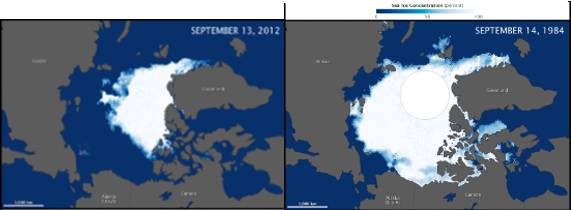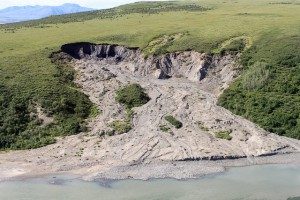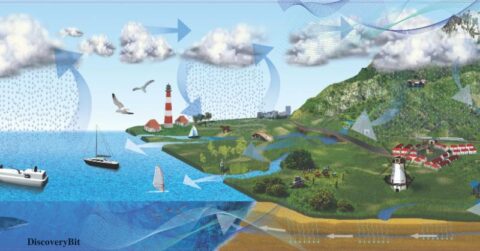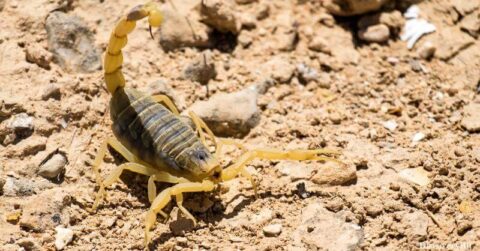Global warming, often debated as a mere scientific ploy, is undeniably reshaping our world. Beyond the controversy lies a looming threat that stretches beyond our generation – a ticking time bomb that could alter the course of our existence. The discourse on climate change, a direct consequence of escalating global temperatures, resonates not just in scientific circles but across sectors impacting health, mortality, environment, politics, and the economy.
Diving into the heart of this matter, Al Gore’s “An Inconvenient Truth” stands as a testament to the urgency of understanding the repercussions of global warming. The impact is not hypothetical; it’s a reality etched in the very fabric of our existence. Recent studies, delving into fossil records, paint a stark picture – if left unchecked, global warming could cast a shadow on our planet for the next 100,000 years.
As we journey through the realms of cause and effect, it becomes imperative to confront the undeniable truth. Beyond past temperature proxies and records, we must grasp the severity of the situation. The effects of global warming and climate change are not mere abstract concepts but tangible threats that demand our immediate attention.
This post unravels the layers of this global dilemma, bringing to light facts that extend beyond the conventional narrative. It’s a call to action, a wake-up call to confront the impacts of climate change that are not confined to news headlines but have far-reaching consequences for the world we inhabit. Join the discourse, stay informed, for the clock is ticking, and the effects of global warming are already at our doorstep.
The Definition of Global Warming And Climate Change
Definition: Climate Change and Global Warming, though often used interchangeably, represent distinct facets of Earth’s evolving story. Global Warming, fueled by the rise in greenhouse gases, spotlights the Earth’s increasing temperature, setting the stage for broader Climate Change. Climate Change encompasses a spectrum of alterations in weather patterns, ecosystems, and sea levels, driven by the warming planet.
Similarities and Differences : Global Warming, a subset of Climate Change, hones in on rising temperatures, acting as its fiery protagonist. Both share the common denominator of greenhouse gas escalation, steering Earth towards a new narrative. While Global Warming spotlights the temperature surge, Climate Change paints a comprehensive portrait of the consequences – altered landscapes, shifting ecosystems, and rising sea levels. In this climatic dance, they intertwine, Global Warming as the ignition, and Climate Change as the unfolding symphony of planetary transformation.
Global Warming: Unmasking The Culprits
Experience a gripping journey through the latest scientific revelations, as we unravel the mysteries driving our planet towards a looming climate crisis. Recent studies, showcased as a beacon of advancement, shed light on the primary culprits accelerating global warming.
Imagine a harmony of greenhouse gases – water vapor (H2O), carbon dioxide (CO2), methane (CH4), nitrous oxide (N2O), ozone (O3), and chlorofluorocarbons (CFC) – stealing the spotlight. Born from the industrial revolution, these emissions from, for example, industries and automobiles intensify the greenhouse effect, propelling us into a perilous era of rising temperatures.
The urgency of this situation becomes undeniable as we confront the tangible outcomes of climate change. Rising sea levels, in tandem with soaring temperatures, create a domino effect amplifying the impacts of the climate crisis. This exposé serves as a rallying cry, urging us to confront the undeniable truths shaping our world. It transcends mere headlines, inviting you to understand the intricate dance between human activities and the Earth’s delicate balance.
For those seeking a deeper understanding, explore the video, below, detailing the intricate choreography of greenhouse gases in shaping the narrative of global warming and climate change. It’s more than a story; it’s an urgent call to collective responsibility.
Known Facts About Global Warming
Undertake a journey into the heart of global warming, where revelations from the Earth’s archives expose a harrowing tale. Dive deep into the known facts, enriched by the relatively latest findings, unraveling the intricate relationship between climate change and its far-reaching consequences.

Greenland Ice Core Layers (Image Credit)
1) Proxy Data Chronicles: A Harmony of Revelation
Proxy data, extracted from ice cores, coral reefs, ocean sediment layers, and tree rings, echo a haunting melody of correlation between climate change and escalating greenhouse gases. The data reveals a startling reality – the rate of global warming today is a staggering 10 times faster than the transition from the ice age to warmer epochs.
2) Ocean’s Searing Woes: A Heatwave Beneath the Surface
Since 1969, the ocean waters have become a hotbed of change, with the top 700 meters witnessing a temperature surge of 0.302 degrees Fahrenheit. Beneath the seemingly calm surface lies a simmering crisis, impacting marine life and ecosystems.
3) Rising Seas, Sinking Realities: The Coastal Catastrophe
The melting ice sheets contribute to a menacing rise in sea levels. In the last two decades alone, the rate of sea level rise has nearly doubled compared to the entire last century, marking a perilous journey towards coastal flooding. The stakes are high, with numerous regions on the brink of submersion.

4) Arctic’s Vanishing Act: A Satellite Spectacle
Earth’s orbiting satellites unveil the chilling spectacle of the shrinking Arctic ice sheet. This visual testament underscores the profound impact of global warming and climate change on the delicate balance of our planet.
5) Ocean Acidity: A Silent Threat Below the Surface
The ocean’s acidity, surging by 30% since the industrial revolution, emerges as a silent assailant. Man-made carbon dioxide, escalating at an alarming rate of about 2 billion tons per year, poses a dire threat to coral reefs, setting off a chain reaction in the marine ecosystem.
6) Chilled Regions Under Siege: A Paradigm Shift in Parasitic Perils
Once immune, cold regions now face an onslaught from parasites like lungworm and diseases from mosquitoes and malaria. The warming temperatures create a breeding ground for these threats, reshaping the health landscape in unexpected ways.
7) Extreme Events Unleashed: Nature’s Fury Unveiled
Record-breaking high-temperature climate change events, such as intense rainfall in the United States, mark an era where nature’s fury reaches unprecedented levels. The climate’s symphony plays louder, demanding our attention and action.
8) Thermometer Wars: Texas Heat vs. Equatorial Intensity
Controversial yet intriguing, some argue that states like Texas in the USA are experiencing hotter temperatures than equatorial African countries. While unofficial, it sparks a crucial conversation about the role of developed nations in intensifying the greenhouse effect, challenging conventional notions about sun intensity at different latitudes.
9) Glacial Retreat: Frozen Giants in Peril
Witness the poignant spectacle of glacial retreat worldwide. Majestic ice giants, like the glaciers in Glacier National Park, are receding at an alarming rate, a visual testament to the Earth’s warming embrace.
10) Ocean Currents in Flux: A Tumultuous Sea Symphony
Explore the shifting dynamics of ocean currents. The intricate dance of these currents, essential for regulating global temperatures, is undergoing transformations, impacting marine life and weather patterns.
11) Polar Bear Plight: Icons of Melting Ice
Delve into the plight of polar bears, the iconic symbols of the Arctic. As their icy habitats vanish, these magnificent creatures face challenges in hunting for food and sustaining their populations.
12) Changing Migration Patterns: Wings in Flux
Witness the aerial ballet of migrating birds transforming. Warmer temperatures are altering traditional migration routes, timing, and destinations, posing challenges for bird species around the globe.
13) Vanishing Islands: The Erosion of Paradise
Explore the heartbreaking reality of disappearing islands. Rising sea levels are eroding the very foundations of some low-lying islands, displacing communities and threatening unique ecosystems.
14) Coral Bleaching Chronicles: A Tragic Underwater Drama
Plunge into the vibrant world of coral reefs, now under siege from bleaching events. Elevated sea temperatures trigger coral bleaching, a perilous phenomenon threatening the biodiversity of these underwater ecosystems.
15) Crop Yield Challenges: Fields Under Stress
Navigate the changing landscape of agriculture. Global warming poses challenges to crop yields as altered temperatures and precipitation patterns impact the productivity of staple crops essential for feeding the world.
16) Urban Heat Islands: Concrete Jungles in the Oven
Explore the phenomenon of urban heat islands. Cities, with their concrete expanses and infrastructure, absorb and trap heat, creating localized hotspots that intensify the effects of global warming.
17) Tundra Transformations: A Botanical Revolution
Traverse the tundra, where warming temperatures trigger a botanical revolution. Once-frozen landscapes now witness the proliferation of shrubs and trees, altering the delicate balance of this unique biome.
18) Thawing Permafrost: A Methane Menace Unleashed
Uncover the silent menace beneath the surface – thawing permafrost. As frozen soils warm, they release methane, a potent greenhouse gas, into the atmosphere, further fueling the global warming crisis.
19) Climate Migration: Human Exodus in the Making
Contemplate the emerging reality of climate migration. Rising sea levels, extreme weather events, and altered living conditions are forcing communities to relocate, presenting unprecedented challenges for global geopolitics.
20) Renewable Energy Revolution: A Beacon of Hope
End on a note of hope with the renewable energy revolution. Explore the advancements in solar, wind, and other sustainable energy sources that hold the promise of mitigating the impacts of global warming and steering us towards a more sustainable future.
Alarming And Looming Specter of global warming

Thawing Permafrost (Image Credit)
1) Permafrost Pioneers: The Chilling Cradle of Time
Explore the world of permafrost – grounds, soils, and rocks frozen for 2 or more years. These icy archives, commonly found in polar regions and high elevations, are the silent keepers of a frozen history.
A) Frozen Secrets Unveiled: The Nematode Resurrection
Witness the breathtaking revival of life from the Pleistocene Age. Recent Russian research reveals nematodes, frozen for 32 thousand and 42 thousand years, revived to life. As the ice caps melt, the question looms: could the thawing permafrost unleash ancient viruses on the world?
B) Giant Viruses: Titans of the Siberian Permafrost
Journey into the Siberian permafrost, where giant viruses, 30 times the size of normal viruses, lie dormant. Discovered in 2015, these ancient titans, like Mollivirus sibericum (~30,000 years old), pose an intriguing yet ominous prospect. While non-human pathogens, the fear persists – could they be harbingers of potential threats to human health?
2) Hothouse Earth: The Tipping Point at 2°C
Stand on the precipice of a climatic catastrophe. Recent studies warn that the Earth, just 1°C above pre-industrial levels, teeters on the edge of a runaway global warming scenario. This scenario, termed “hothouse earth,” could unfold if the temperature surpasses the 2°C threshold, triggering a domino effect of 10 feedback mechanisms.
Ten Feedbacks Unleashed: The Chain Reaction Countdown
Delve into the countdown of catastrophic feedback mechanisms:
a) Thawing permafrost
b) Weakening land and ocean carbon sinks
c) Release of methane from the ocean floor
d) Coniferous forest die-back
e) Increased carbon dioxide production by ocean bacteria
f) Amazon rainforest die-back
g) Reduced northern hemisphere snow cover
h) Loss of Arctic summer sea ice
i) Reduced Antarctic sea ice
j) Melting polar ice sheets
A) Hothouse Earth’s Dire Consequences: A Sea of Peril
Contemplate the repercussions of hothouse earth – a swift rise in sea levels by 197 feet, drowning coastal cities, rendering equatorial countries uninhabitable. The impending catastrophe could unfold in decades if greenhouse gas emissions are not drastically curtailed or removed.
3) A Dire Warning: The IPCC’s Call to Action
Heed the call to action from the Intergovernmental Panel on Climate Change (IPCC). Any warming beyond 1.5°C increases the risk of irreversible changes impacting ecosystems. The urgency is clear – it’s time to take decisive steps toward a sustainable future.
In this frozen realm, time is thawing, revealing secrets that could reshape the destiny of our planet. The chronicles of permafrost unravel, echoing a plea for immediate and collective action against the unfolding specter of global warming.
The Alarming Decline of Insect Life in the Shadow of Climate Change
In the complex interplay of repercussions stemming from global warming, a silent crisis emerges – the dwindling insect population. As the planet teeters on the brink of a potential sixth mass extinction, the 2.5% annual loss of these tiny creatures becomes a deafening alarm bell.
Beyond their minuscule size, insects play a colossal role in sustaining ecosystems. Serving as vital links in the food chain, pollinators, and nutrient recyclers, their decline poses a catastrophic threat. The impending fallout extends beyond the insect world, starving birds, amphibians, fish, and reptiles, with a chilling trickle-down effect on humanity.
The disappearance of these seemingly inconspicuous beings could tip the balance of our planet’s delicate ecosystem. In their absence, a void echoes, and the repercussions span from the smallest of organisms to the very fabric of human survival. The clock ticks, and scientists warn that at the current pace, these crucial contributors may fade into oblivion by the turn of the century, leaving an irreplaceable void in the symphony of life.
Top 20 Dynamic Strategies to Combat Global Warming
In the face of the escalating crisis of global warming, urgent and innovative actions are essential. Here are 20 dynamic strategies that promise to make a significant impact on combatting climate change, supported by compelling facts and figures:
1) Renewable Revolution: Embrace Clean Energy
-Transition to 100% renewable energy sources, reducing dependence on fossil fuels, the largest contributor to global warming, accounting for over 70% of greenhouse gas emissions.
-Fact: As of 2021, renewable energy accounted for 26.2% of global electricity generation.
2) Reforesting Our Planet: The Green Lungs
-Plant trees on a massive scale to absorb CO2 and counter deforestation.
-Stat: Forests sequester around 2.4 billion tons of CO2 annually.
3) Eco-Friendly Transportation: Move to Electric
-Promote electric vehicles to reduce emissions from traditional transportation.
Figure: The transportation sector contributes to 23% of global CO2 emissions.
4) Energy Efficiency: The Low-Hanging Fruit
-Improve energy efficiency in industries, homes, and appliances.
-Data: Energy efficiency measures could reduce global energy demand by 40% by 2050.
5) Circular Economy: Reducing Waste, Reducing Emissions
-Adopt circular economy principles to minimize waste and emissions.
-Insight: The world generates about 2.01 billion tons of municipal solid waste annually.
6) Sustainable Agriculture: Nurturing the Earth
-Implement regenerative agriculture practices to sequester carbon in the soil.
-Impact: Agriculture contributes to 24% of global greenhouse gas emissions.
7) Climate-Friendly Diets: Power of Personal Choices
-Promote plant-based diets to reduce methane emissions from livestock.
-Note: Livestock farming accounts for 14.5% of global greenhouse gas emissions.
8) Green Buildings: Constructing Tomorrow
-Develop energy-efficient and sustainable buildings.
-Statistic: Buildings are responsible for 39% of global CO2 emissions.
9) Invest in Carbon Capture: Technological Marvels
-Support research and implementation of carbon capture technologies.
-Stat: Direct air capture can remove CO2 from the atmosphere, mitigating climate change.
10) Community Resilience: Preparing for Climate Impacts
-Build resilient communities to withstand the effects of climate change.
-Fact: Sea level rise threatens 680 million people living in low-lying coastal zones.
11) Education for Action: Spreading Awareness
-Increase public awareness about the effects and impacts of climate change.
-News: Ongoing climate change news highlights the urgency for collective action.
12) Corporate Responsibility: Business with a Green Heart
-Encourage businesses to adopt sustainable practices and reduce emissions.
-Example: Apple aims to be carbon neutral by 2030, influencing other corporations.
13) International Cooperation: Global Solutions
-Strengthen international collaboration to address climate change collectively.
-Insight: The Paris Agreement aims to limit global warming to well below 2 degrees Celsius.
14) Climate-Focused Policies: Legislation for Change
-Advocate for and implement policies that prioritize climate action.
-Statistic: Over 190 countries have submitted nationally determined contributions under the Paris Agreement.
15) Innovation Hub: Foster Climate Technologies
-Invest in and support innovation in climate change mitigation technologies.
-Impact: Breakthrough technologies could accelerate the fight against global warming.
16) Water Conservation: Liquid Gold
-Promote water conservation to address changing precipitation patterns.
-Data: Global water demand is projected to exceed supply by 40% by 2030.
17) Adapting to Sea Level Rise: Coastal Solutions
-Develop strategies to adapt to rising sea levels and protect coastal communities.
-Report: Sea levels have risen by about 8-9 inches since 1880.
18) Climate Finance: Funding Sustainability
-Mobilize funds for climate change adaptation and mitigation projects.
-Stat: Climate finance reached a record high of $612 billion in 2017.
19) Youth Engagement: Future Guardians
-Empower and involve the younger generation in climate action.
-News: Youth-led climate movements gain momentum globally.
20) Beyond Borders: Environmental Diplomacy
-Engage in diplomatic efforts to address environmental issues across borders.
-Example: The Great Green Wall initiative aims to combat desertification in Africa.
In the battle against global warming, implementing these strategies collectively can pave the way for a sustainable and resilient future. It’s not just a choice; it’s a necessity.
Reference
https://climate.nasa.gov/evidence/
https://www.mnn.com/earth-matters/animals/stories/worms-frozen-permafrost-42000-years-brought-back-life
https://finance.yahoo.com/news/ancient-giant-viruses-being-unearthed-155600829.html
https://www.space.com/40690-dino-killing-asteroid-impact-warmed-earth.html
https://uk.news.yahoo.com/hothouse-earth-humanity-just-decades-away-runaway-climate-change-meltdown-074425987.html
Tags: Al Gore Carbon dioxide Climate Climate change climate change news effects of climate change effects of global warming effects of greenhouse Global Warming global warming causes global warming definition Greenhouse Gas Greenland Ice Core Hothouse earth impacts of the climate change Nature results of global warming sea level rise












